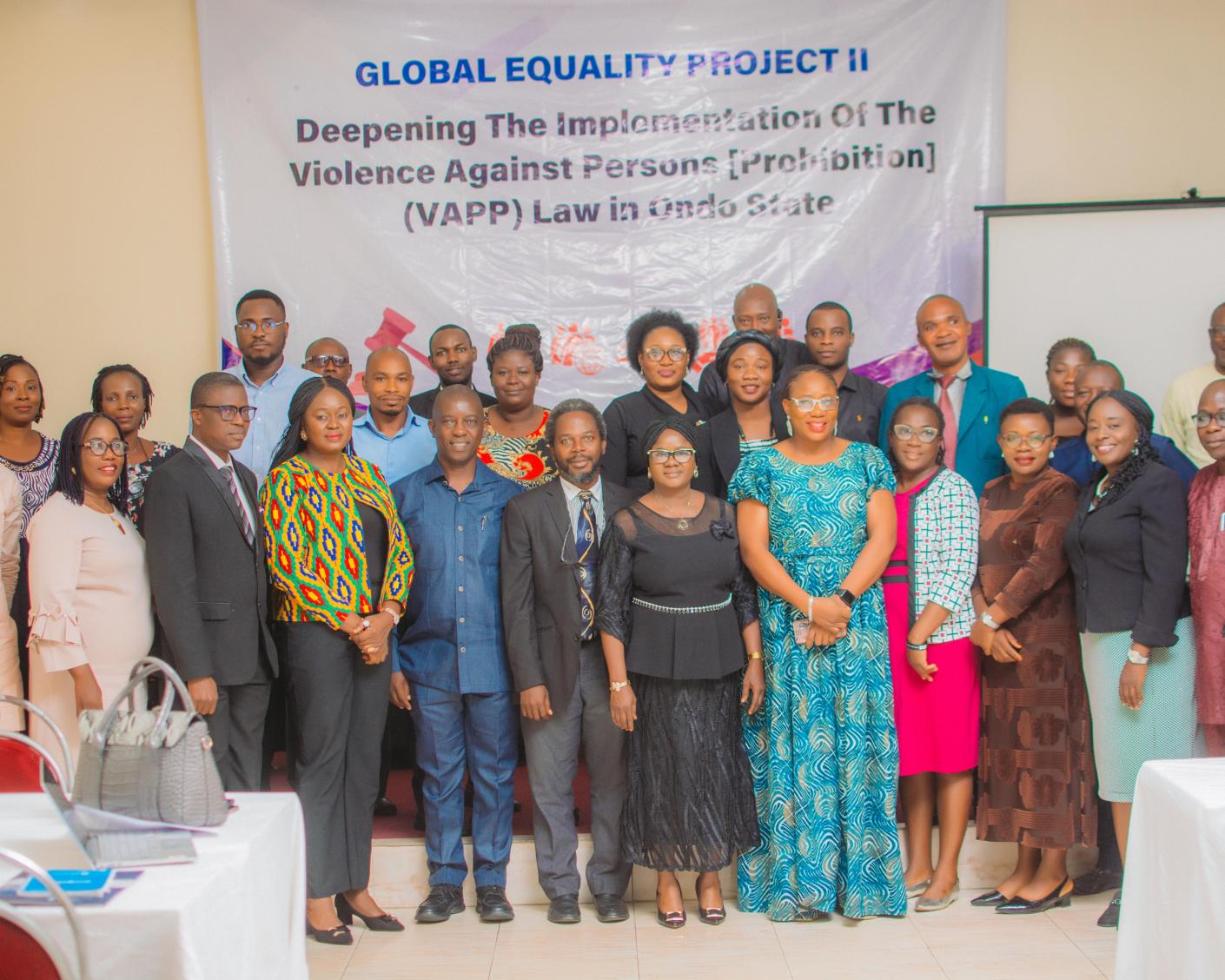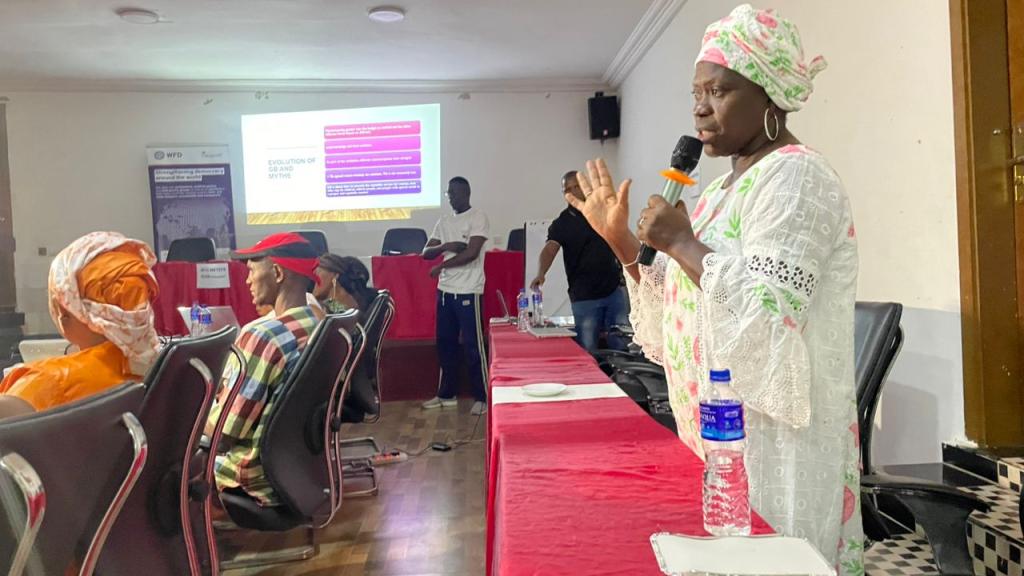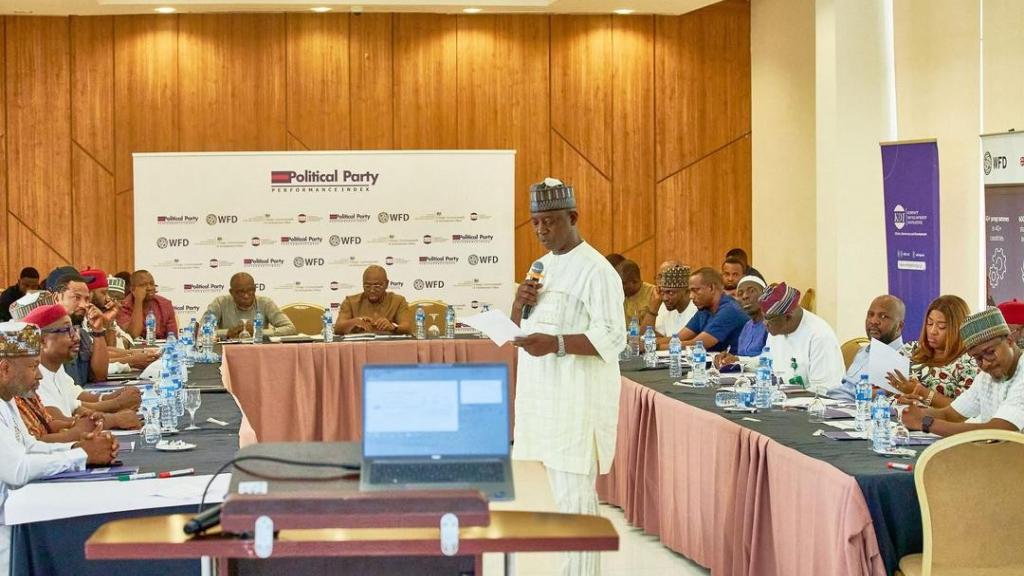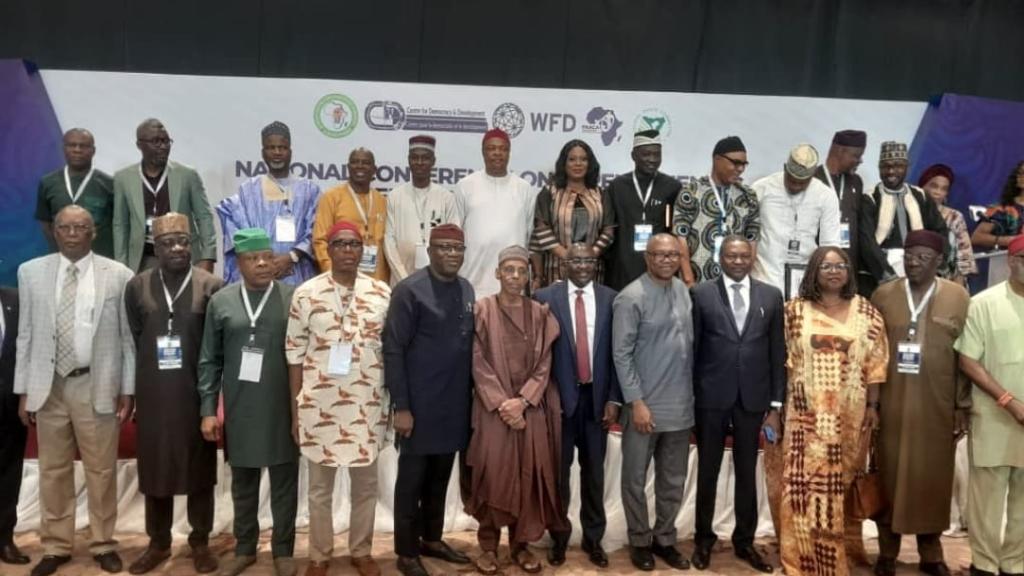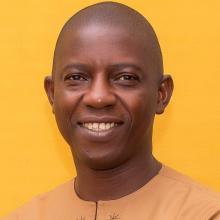We support efforts to revise and strengthen pro-inclusion laws, assist political parties in becoming more democratic, inclusive, and effective in public outreach, and help ensure their compliance with legal frameworks.
Additionally, we build the capacity of civil society organisations to demand accountability and promote the active participation of marginalized groups in electoral processes through targeted voter education. WFD also conducts policy research on key thematic areas to promote evidence-based engagement and deliver measurable impact.
Key areas of work
Current programmes
Nigeria Open Political Party (NOPP) project
Background
The Nigeria Open Political Party (NOPP) project, funded by the FCDO, aims to increase the participation of women, young people, and persons with disabilities (PWDs) in Nigeria's political and electoral processes. The outcome of the 2023 elections emphasised that these groups remain underrepresented due to high political costs, male-dominated structures, and non-compliance with party codes. WFD leverages its collaborations with political parties, the National Assembly, and civil society to promote inclusive representation and strengthen internal democracy of political parties.
Objectives
The NOPP project focuses on boosting the involvement of underrepresented groups by incorporating inclusive practices within political parties. Using research from the first year of the programme, WFD identifies evidence-based actions to support political parties’ effectiveness on inclusion, public outreach and legal compliance. The project also builds the skills and knowledge of civil society organisations (CSOs) to advocate for political party inclusion.
In the most recent phase of the programme, WFD conducted a successful assessment of Nigerian political parties using the Political Performance Index Tool (PPPI). The PPPI draws inspiration from established tools such as the Western Balkans Political Parties Transparency Index, the International Corruption Perception Index, the African Peer Review Mechanism, the United Nations Human Development Index, and the Electoral Integrity Project. Focusing on the three key dimensions of legal compliance, inclusivity, and public outreach, WFD will use the performance-based report of the PPPI assessment to engage with political parties, working closely with the Independent National Electoral Commission (INEC).
Strengthening Women’s Representation through Actions by Political Parties (SWRAPP)
Background
Political parties are essential to democratic governance, serving as platforms for representation and policy development. In Nigeria, however, political parties face challenges such as weak institutional structures and inadequate inclusion of marginalised groups. Although women make up 49% of the population, they hold less than 5% of seats in the National Assembly—placing Nigeria among the lowest globally for women’s political representation.
To address gender and inclusion gaps, WFD supported advocacy for the Special Seats Bill by engaging the leadership of 19 political parties in meaningful dialogue and empowering the National Women Leaders Forum of Political Parties in Nigeria to participate actively in the process. This included mobilising advocacy within their parties and lobbying parliamentarians for the bill's passage.
WFD also facilitated the transition of the Inter-Party Advisory Council (IPAC) from operating under code of conduct, which was due for review, to adopting a new constitution with robust provisions for the inclusion of women and other underrepresented groups.
Objectives
The Strengthening Women’s Representation through Actions by Political Parties (SWRAPP) project aims to enhance gender representation and inclusion in Nigeria’s governance space. Progress was made with the successful transition of IPAC from a code of conduct to a constitution with inclusivity provisions which is in alignment with the IPAC strategic plan. The project also strengthened the capacities of national women leaders of registered political parties to advocate for the Special Seats Bill in Parliament and within their respective parties, promoting inter-party dialogue and cohesion to mobilise support for the bill and empower women in politics.
Strengthening Environmental Democracy through Piloting and Innovation
Background
The Strengthening Environmental Democracy through Piloting and Innovation project assessed Nigeria’s climate governance process and explored modalities for adequate consultation and representation of the needs of citizens in line with international best practices. The current climate governance system highlights the strong linkages between the actions to address the climate and environmental crises and actions to strengthen democratic practices.
Objectives
Through piloting and testing innovative approaches across four African countries, the regional project successfully strengthened WFD’s reputation as a key stakeholder in the environmental democracy space. In Nigeria, a tailored Political Economy Analysis (PEA) was conducted to examine the inclusivity of the country’s climate governance structures and processes. The findings have been presented to the chair of the relevant committee in the National Assembly for adoption and implementation.
Completed programmes
Global Equality Project (GEP) Phase II
The second phase of the Gender Equality Program (GEP II) successfully enhanced the implementation of the Violence Against Persons Prohibition (VAPP) Act in Ondo State, Nigeria. The VAPP act provides a legal framework for the protection of all citizens against all forms of violence. This includes vulnerable people such as women, girls, children, youth, and persons with disabilities (PWDs).
GEP II built on the gains made with the implementation of the Commonwealth Equality Project (CEP) and the first phase of the project – GEP I – which ran from August 2021 to March 2022.
Global Equality Project (GEP)
Building on the gains made under the Commonwealth Equality Project (CEP), this programme supported the implementation of the VAPP law in two further states – Osun and Ondo – where the law had been recently passed. Implementation needed to be effectively guided and facilitated to enable maximum impact. Training of first-line officials to professionally engage with survivors of violence, as well as committing key stakeholders to effectively implementation was paramount. Importantly citizens needed to be aware of the existence of the laws passed to protect them, and modalities for engaging the process.
Commonwealth Equality Project
Between October 2020 and March 2021, WFD and Kaleidoscope Trust (KT) implemented the Commonwealth Equality Project (CEP) – funded by the UK Foreign, Commonwealth and Development Office (FCDO). CEP facilitated the tackling of violence against women and girls through helping the passage of the Violence Against Persons Prohibition (VAPP) law in Oyo State. CEP supported the Oyo State House of Assembly to review the Violence Against Persons Prohibition (VAPP) Bill and pass the same into law, sensitised stakeholders at the grassroots on the VAPP Act, and conducted a national research on the implementation of the act as a guide for other states yet to domesticate it.
Beyond intervention at the state level, WFD commissioned a national research on the implementation of the VAPP Act, and other related laws and how it has protected women and girls across Nigerian states. The presentation of the report of this research to the public further reinvigorated the passage of such laws in other States of Nigeria.
Inclusive and Accountable Politics
WFD worked with the National Institute for Legislative and Democratic Studies (NILDS) to watch political parties from an inclusion lens as Nigeria prepared for the 2023 general elections. WFD supported evidence-based and creative efforts to enable more democratic and inclusive practices by the political parties. Findings will be used after the 2023 general election to engage with and strengthen political parties’ internal party systems, accountability, and democratic practices. This built on the series of policy dialogues on topical national concerns, which WFD convened, to generate policy briefs for legislative actions and advocacy for credible electoral laws. This is while advancing support for more open and inclusive political parties in Nigeria through evidenced assessment of political parties’ performance, as well as via technical support to the National Assembly on PLS. The understanding of the concept of PLS by staff and members is a fundamental first step to its integration in the legislative process.
Supporting Marginalised Nigerians in the Election Process (#OurVoteCountsNG)
WFD, with funding from the European Union, and in partnership with the Nigerian Women Trust Fund (NWTF) implemented a three-year programme christened #OurVoteCountsNG. The overall goal of the programme was increasing the participation of youths, women, and persons with Disabilities (PWDs) in elections. It contributed to this goal by creating awareness among underrepresented groups using targeted messaging conveyed through peer-to-peer voter education strategy about the electoral process, particularly in hard-to-reach communities. Working closely with the Independent National Electoral Commission (INEC), the National Youth Service Corps (NYSC), and women networks, the project built the confidence of citizens in the electoral process and made them realize the importance of their votes to the process. The peer-to-peer strategy entails building the capacity of young people to reach out and engage with their peers, as well as women reaching out to fellow women; thereby strengthening active, responsive, participatory, and engaged citizenry.
Supporting Parliamentarians in Sub-Saharan Africa to prepare for COP26 programme
Climate change is one of the most pressing issues of our time. To mitigate this challenge, huge changes at all levels of society, politics and businesses are required. Ahead of the 26th Conference of the Parties (COP26), WFD and Konrad-Adenauer-Stiftung (KAS) implemented a programme to inform parliamentarians in five Sub-Saharan African countries, including Nigeria, of COP26 issues. The January to June 2021 programme supported parliamentarians in Nigeria to examine their national progress in delivering Nationally Determined Contributions (NDCs). The programme also helped the MPs scrutinise Nigeria’s national climate policies and legislations.
Youth Empowerment Project
Working with youth-focused civil society organisations, as well as formal youth bodies, Politics with Values (PwV) Network and the Young Parliamentarians Forum (YPF), the programme showed young people how they can support campaigns that advocate for greater youth participation and engage with political institutions. WFD and the UK political parties shared a range of experiences on youth participation from the UK and other countries where WFD works. The combination of grassroots campaigning and high-level advocacy contributed to the efforts at addressing the low levels of youth participation and representation in Nigeria by encouraging more youth-led policy initiatives and better inter-generational partnerships.
Partnership to Engage, Reform, and Learn (PERL)
Funded by the Foreign, Commonwealth and Development Office (FCDO), WFD was part of the consortium that implemented the flagship, five-year Partnership to Engage, Reform and Learn (PERL) programme. Working at the national level and in 3 States – Jigawa, Kano and Kaduna – WFD supported constituencies to influence governments about the services they received, and any policies related to them. To achieve this, WFD supported the use of evidence-based research for policy recommendations related to the budget process in the National Assembly and the State Houses of Assembly in Jigawa, Kano and Kaduna, with lessons replicated in other State Assemblies. Among other achievements, the consortium successfully supported the advocacy for State Houses of Assembly’s financial autonomy, and developed implementation mechanism to be adopted by the state assemblies.
Key results

Strengthening political party coherence
The leadership of Nigeria’s 19 registered political parties has committed to adopting more inclusive and democratic practices through the signing of a Memorandum of Understanding (MoU).
Support to the National Women’s Leadership Forum of Political Parties in Nigeria
WFD supported the launch of the Forum—a coalition of women leaders from all political parties in Nigeria—as well as the development of a dedicated action plan and operational guidelines to ensure its sustainability.

Inclusive political party practices
WFD supported the development of Youth Action Plans for political parties to promote more inclusive party structures.
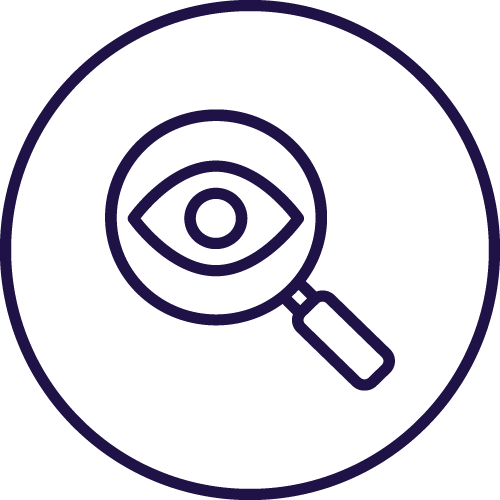
Improved legislative practices
The National Assembly of Nigeria has committed to institutionalising post-legislative scrutiny (PLS) as a core tool of parliamentary practice by including it in its legislative agenda. The launch of dedicated PLS units within the National Institute for Legislative and Democratic Studies (NILDS) and the Oyo State House of Assembly further demonstrates progress in the adoption of PLS as a legislative tool in Nigeria.
Strengthened party systems
WFD supported the Inter-Party Advisory Council (IPAC) in developing its first-ever Strategic Plan (2024–2027). In addition, individual political parties created action plans to promote inclusive practices.

Support for reforms and affirmative action
The Inter-Party Advisory Council (IPAC) adopted a communiqué committing political parties to advance the Special Seats Bill through legislative advocacy, lobbying, and public sensitisation initiatives. Parties also pledged to implement internal reforms to enhance inclusivity, including the adoption of gender-sensitive recruitment and candidate selection processes.
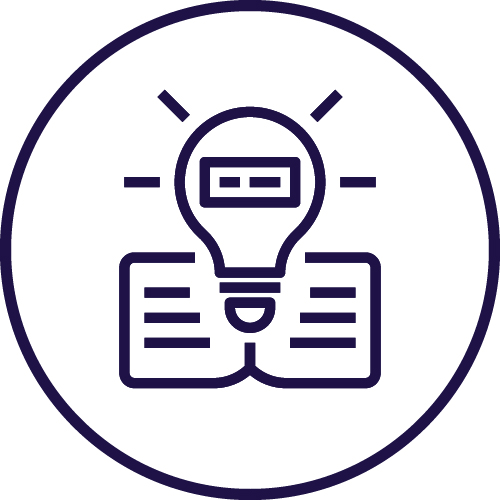
Development of the Political Party Performance Index (PPPI)
WFD developed an innovative, evidence-based tool to evaluate and enhance the performance and accountability of political parties in Nigeria. The PPPI focuses on three key pillars: legal compliance, inclusivity, and public outreach. It provides a comprehensive assessment framework aimed at promoting transparent and accountable political party practices, fostering increased public trust in parties as institutions, and ultimately strengthening democratic governance in Nigeria.
Conducting a PEA on inclusion in climate governance
A tailored Political Economy Analysis (PEA) was designed and conducted in Nigeria, focussing on the inclusivity of the country’s climate governance structures and processes, with particular emphasis on the involvement of women, youth, and persons with disabilities.

Public debt management analysis
WFD assessed the role and capacity of Nigeria’s National Assembly in overseeing public debt. With Nigeria’s rising public debt profile, effective oversight by the National Assembly has become more essential. The report, generated using the Public Debt Management Assessment Toolkit (PDMAT), aims to empower the Nigerian Parliament to fulfil its rightful oversight role.
Latest news
Contact us
6th Floor, Churchgate Tower, Constitution Avenue,
Central Business District
Abuja
Federal Capital Territory
Nigeria
